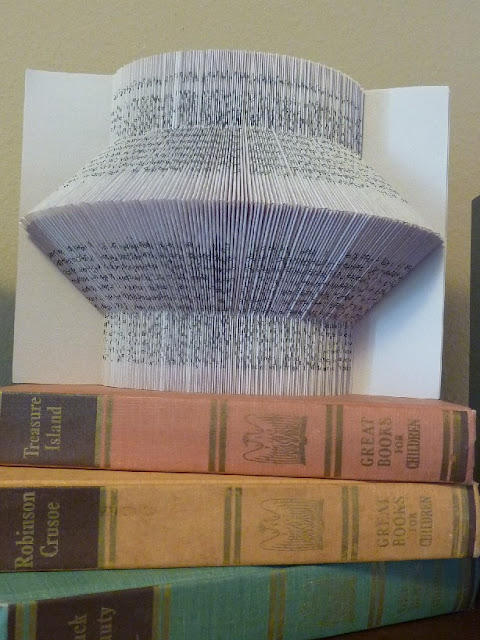There was that moment while reading The Queen of Water by Laura Resau when I finally tore myself away
from the book to get some sleep. As I
shut the cover, I glanced at the author’s names and let a loud “OHHHHH” escape
my lips.
The plot: The
Queen of Water tells the story of Maria Virginia, a Quechua girl living in Ecaudor, who
becomes a servant for an upper class mestizo
family while she is very young. Virginia never receives
any sort of pay, nor the promised visits to her family so whether she was sold
by her parents or simply given away remains ambiguous. The Doctorita is almost the “evil
step-mother” type who beats Virginia
and keeps her locked in the house. The
Doctorita’s husband, Nino Carlitos, is a seemingly kind father figure until his
affections for Virginia and his jealousy of other teenage boys reeks of something
more sinister. In spite of her terrible
situation, Virginia
is vivisima (very clever), curious,
and resilient. Even though she hates the
mestizos she serves, there is
something, apart from their threats, that holds her back from escaping.
The moment: So about “that moment” I mentioned
above. If you’ve read The Shack by Wm. P. Young you might have
had this reaction too (except, with The Queen of Water it’s undoubtedly a
real person and situation.) You see, the
book is written by TWO authors one of which is Laura Resau, whom I recognized
as the author of Red Glass. The other is Maria Virginia Farinango of whom
I had never heard. Maybe I should have
guessed after reading the words on the cover “a novel based on a true story” –
but then again, I’ve read a lot of historical fiction books, most of which are
based on true stories. Once I put
together that the author and the girl in the book were the same person it made
the story all the better.
Random Interesting
Fact: An interesting note for Spanish students – on page 259 it is
mentioned that the poor indigenas are
scorned by shopkeepers and middle class indigenas and they show their dislike by not using polite usted
form when speaking to the poor indegenas. So instead of “Como estas?” (as to a stranger to show
respect) they would say “Como
esta?” (which you only use with close friends or peers) (of course, these would have accents, which I haven't figured out how to work on blogger =)
Overall: I loved this book! I loved it as a story, but I also loved that it was a true story. Even better was that Ms. Resau has so much information on her blog about her experience writing the book and time with Maria Virginia. It is so interesting to have a book literally "come alive."
Ms. Resau's website:
http://www.lauraresau.com/
Ms. Resau's blog:
http://lauraresau.blogspot.com/
What I Took Away:
In the last third of
The Queen of Water,
Virginia goes
to a shop and finds a book
Secrets to a
Happy Life in which
“the key idea is Querer
es poder. To want is to be able to. To want is power. If you want something enough, you’ll find a
way to get it. You have to be creative,
think outside the box. You have to
repeat your dream to yourself, with complete faith that you will get it. You have to envision your dreams as if
they’re already real.”
Querer es poder is
the way that Virginia
eventually achieves her dreams. She is
creative, just like MacGyver – her admired television star – and works towards
her dreams.
Learning:
1 –
This was mostly entertainment; I may have seen the characters learn and grow
but did not do so myself.
2 –
I may have learned a few interesting facts or life lessons that I’ll probably
forget in a week.
3 – This book was
informative on a topic I wasn’t very knowledgeable about and/or I learned a new
way of looking at life.
4 –
I felt like I learned about something I knew nothing of (and I will remember
it) and/or it answered questions I had about life.
5 –
This book was life-changing.
Vocabulary:
1 –
No new words here.
2 –
I might have seen one or two I didn’t recognize.
3 – A couple of words
OR foreign language words.
4 –
Lots of new words to look up and learn!
5 –
There were new words every page, I sometimes felt they distracted and inhibited
me from understanding the book.
(based
on vocabulary needed for SAT or ACT tests.)
Content:
1 –
Nothing to worry about, I would be comfortable reading this book to my mom,
sister, grandma, or Pastor.
2 –
This book may have mild violence or language.
3 – This book has
medium content in several areas and is suitable for ages 13+.
4 –
This book may have blatant content in one or two areas (violence, language).
5 –
This book has blatant content in many areas.
(Please
contact me if you would like to know specifics about the content and why I
rated it a 3.)
Have you read
The Queen of Water or any of Laura Resau's books? What did you think of them? Leave a comment letting me know, I would love to hear what you have to say!)



















































